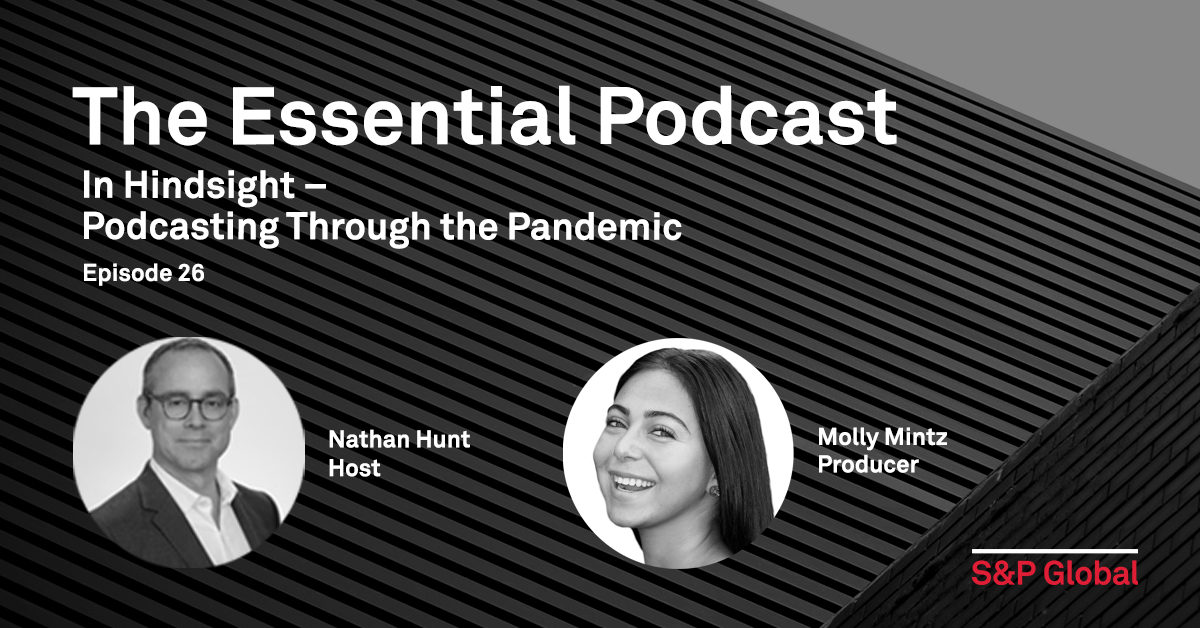Featured Topics
Featured Products
Events
S&P Global Offerings
Featured Topics
Featured Products
Events
S&P Global Offerings
Featured Topics
Featured Products
Events
S&P Global Offerings
Featured Topics
Featured Products
Events
Language
Featured Products
Ratings & Benchmarks
By Topic
Market Insights
About S&P Global
Corporate Responsibility
Culture & Engagement
Featured Products
Ratings & Benchmarks
By Topic
Market Insights
About S&P Global
Corporate Responsibility
Culture & Engagement

Host Nathan Hunt is joined by Essential Podcast producer Molly Mintz to review the events—and episodes—of 2020. Not only discussing their lessons learned and favorite guests of the year, the duo share their thoughts on what topics they’re eager to tackle next.
Listen and subscribe to this podcast on our podcast page, Apple Podcasts, Google Podcasts, Deezer, and Spotify.